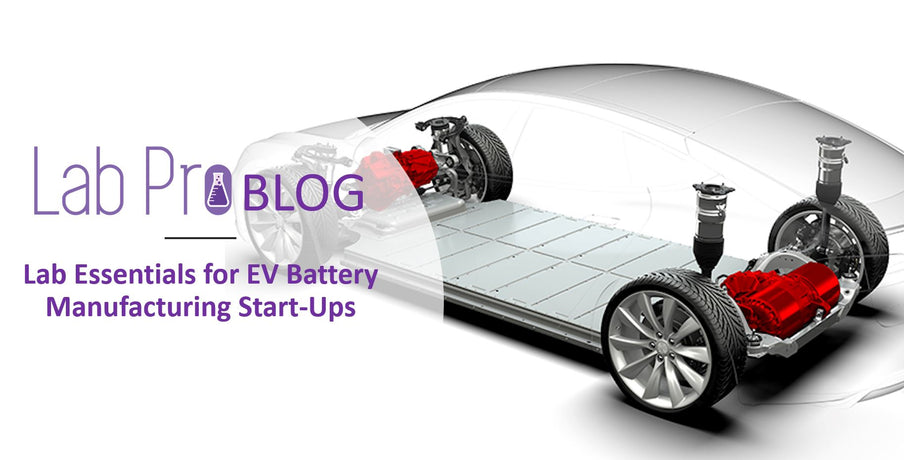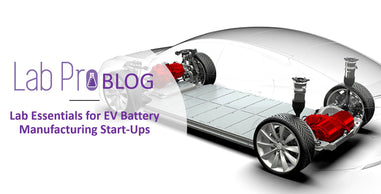- No products in the cart.
The demand for electric vehicles is on the rise. One of the most important components of an electric vehicle is the battery. Quality manufacturing plays a key role in the performance of the battery. However, before the manufacturing process can be implemented, you must make sure you have all the essentials for EV battery manufacturing in your lab.
What is an EV Battery?
An EV battery is a group of single battery cells that are clustered and protected by a frame known as a module. Each module has its own circuitry and the modules are grouped together into a pack. The pack is controlled by a management and cooling system that manages the energy’s charges and discharges, regulates the voltage & heat, and controls at what rate the battery drains.

The batteries are powered by lithium-ions that move through an electrolyte solution. Electrolytes carry ions that are positively charged between electrodes known as anodes and cathodes. This creates an electric current that powers the motor. The batteries are made out of combinations and chemistries of lithium, cobalt, iron, carbon, aluminum, nickel, manganese, phosphorus, silicon, and oxygen.
What is EV Battery Manufacturing?
EV battery manufacturing is the production of batteries for electric vehicles. Currently, electric vehicles run on lithium-ion batteries. Manufacturers are always experimenting with the production process, configurations, and with chemistries. Their goal is to continuously create even more efficient batteries that cost less, last longer, and are more environmentally friendly.
Electric vehicles compete with other electronics for the lithium-ion batteries. Even though the elements that make up the lithium-ion batteries are very common, the issue is producing enough batteries to keep up with the increasing demand for electric vehicles.
What Lab Equipment Do I Need During the EV Battery Manufacturing Process?
There are certain types of lab equipment and chemicals needed for the manufacturing process of EV batteries.
What Chemicals Do I Need During the EV Battery Manufacturing Process?
What PPE is Needed During the EV Battery Manufacturing Process?
Personal protective equipment is essential during the battery manufacturing process. There are many health and safety hazards that can arise in this type of environment.
Some of the personal protective equipment that workers in the manufacturing environment should wear include the following:
For over 40 years, Lab Pro Inc. has been committed to delivering the highest quality hand tools, chemicals, lab equipment, distance learning kits, lab supplies, and cleanroom PPE apparel to medical device companies and laboratories worldwide. To learn more, visit the biggest Lab Supply showroom in California, or contact us online or at 888-452-2776.











































